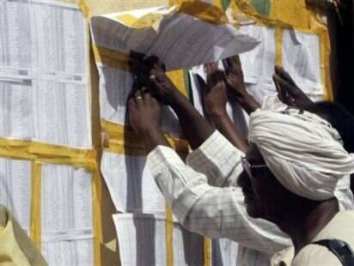Sudanese cabinet approves amendments to electoral law
June 19, 2014 (KHARTOUM) – The Sudanese Council of Ministers on Thursday approved amendments to the elections law at a meeting chaired by First Vice President Bakri Hassan Saleh.

The goal of the amendments, according to the spokesman for the Council of Ministers Omer Mohamed Saleh, is to accommodate the changes resulting from creation of new states. He noted that as a result, the percentage of proportional representation according to the draft bill went up from 40% to 50% with an increase in the minimum allocated for women from 25% to 30% and for the party representation list from 15% to 20%.
Saleh said in press statements that the bill amended the 2008 elections law in line with a study conducted by the National Elections Commission (NEC) based on the experience of the 2010 elections.
The spokesman asserted that the new bill also came in response to the desire of political parties, which took part in a series of workshops hosted by the NEC which also included the civil society, lawmakers and experts.
Omar further said that under the proposed law, the 4% minimum ratio needed to qualify for representation by parties in any national or legislative body was eliminated to provide an opportunity for them to gain access to the national assembly or state legislatures.
The bill also included a provision that terminates employment of anyone holding public office when they gain membership in national or state legislatures.
He added that the Council of Ministers affirmed the use of the national number as the primary identification in the electoral register, stressing the government’s readiness to consider any additional amendments resulting from the national dialogue that would lead to the enhancement of democratic practice in the country.
Yesterday Mustafa Osman Ismail, the ruling National Congress Party (NCP) political secretary, said that the amendments are necessary to avoid a constitutional vacuum which opposition parties have warned of.
However, Ismail stressed that these amendments will not serve as a “veto” to postponing elections, noting that elections can be postponed a week before its date if agreed to by dialogue participants.
This week, Sudan’s presidential assistant Ibrahim Ghandour said that elections will most definitely take place as planned next year if opposition parties continue to refuse to engage in dialogue.
“When the elections commission announces election date, we will go ahead”, he said.
Sudanese officials in the past said 2015 general elections will proceed as planned irrespective of the national dialogue process.
Sudan’s general elections are set to be held in April 2015 but opposition parties threatened to boycott it saying the NCP holds absolute control over power and refuses to make any compromises to end the civil war and allow public freedoms.
(ST)
